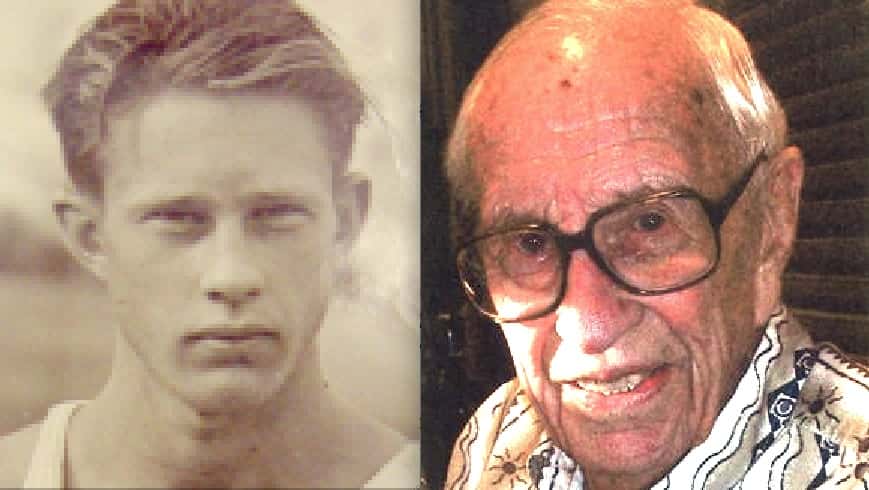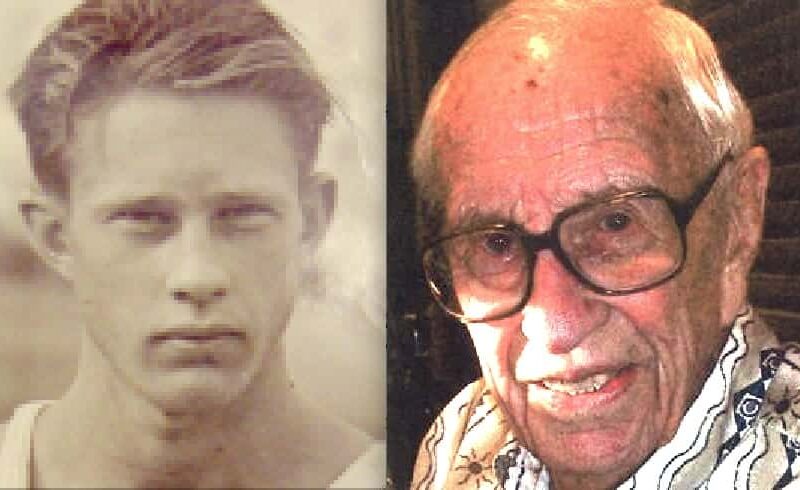Bob Fletcher: The Unsung Hero Who Protected Japanese-American Farms During World War II

Bob Fletcher may not be a household name, but his actions during World War II exemplify courage, integrity, and an unwavering sense of justice.
At a time when fear and prejudice ran rampant in the United States, Fletcher risked his reputation and livelihood to protect the farms of Japanese-American families who were forcibly interned by the U.S. government. His story is one of quiet heroism, a man who stood up for what was right in the face of widespread injustice.
Early Life and Background
Born in 1911 in California, Bob Fletcher grew up in a time when the agricultural industry was thriving in the state. He worked as a farm inspector for the Sacramento County Agriculture Department, inspecting farms to ensure they adhered to proper farming practices. By the time World War II broke out, Fletcher had built a life around agriculture, becoming deeply involved in the farming communities of northern California.
However, his life took a dramatic turn when the U.S. government began the internment of Japanese-Americans after the attack on Pearl Harbor in 1941. Over 120,000 individuals of Japanese descent, many of whom were American citizens, were forcibly removed from their homes and sent to internment camps. Their properties and businesses were left behind, and many Japanese-American farmers feared their farms would be lost forever.
The Call to Protect Japanese-American Farms
Bob Fletcher’s connection to the Japanese-American community came through his work as a farm inspector. He had developed relationships with Japanese-American farmers in the Florin area, located near Sacramento. When these families were forced into internment camps, Fletcher saw their anguish. Many feared their farms would be taken over, abandoned, or sold at a loss.
Three families—Tsukamotos, Nittas, and Okamotos—asked Fletcher if he would be willing to look after their farms while they were interned. Fletcher, realizing the gravity of their situation, agreed, despite the personal risk involved. It was not an easy decision. Anti-Japanese sentiment was strong, and by helping these families, Fletcher risked alienating himself from his community. Nevertheless, he took on the responsibility.
A Farm Inspector Becomes a Farmer
For the duration of the war, Bob Fletcher worked the land on the three Japanese-American farms as if they were his own. Managing nearly 90 acres of vineyards and other crops, he worked from dawn until dusk, tending the fields, maintaining equipment, and ensuring the farms remained productive. It was grueling work, but Fletcher’s dedication never wavered.
He didn’t stop at just farming; Fletcher made sure that taxes, mortgages, and insurance payments were kept up to date on all three farms. He used the income from the harvests to cover these expenses, ensuring that the families would have homes and businesses to return to after the war. This was no small feat—farming was physically demanding, and Fletcher was essentially managing three farms single-handedly.
Facing Opposition and Risk
Bob Fletcher’s decision to help these families was met with criticism and suspicion. Many people in the local community viewed his actions as unpatriotic, sympathizing with what they saw as an “enemy race.” Some even went as far as accusing him of collaborating with the Japanese. Despite the backlash, Fletcher remained steadfast in his commitment to the families whose lives had been upended by the internment policy.
His work on the farms was not without risk either. With the U.S. government seizing control of Japanese-American property, Fletcher had to be vigilant to ensure that the farms were not taken over or claimed by others during the war. He was determined to see that the families would have their farms intact upon their return.
The Return of the Japanese-American Families
When the war ended in 1945 and Japanese-American families were released from the internment camps, many returned to find their properties in disarray or seized by others. However, thanks to Bob Fletcher, the Tsukamoto, Nitta, and Okamoto families were able to return to their farms just as they had left them. Fletcher handed back the farms in good condition, with the mortgages paid and the fields still productive.
For these families, Fletcher’s actions were nothing short of heroic. He had ensured that they would not lose everything they had worked so hard for. His selflessness preserved not only their livelihoods but also their dignity during one of the darkest chapters in American history.
Recognition and Legacy
For years, Bob Fletcher’s story remained relatively unknown. Like many acts of quiet heroism, it was overshadowed by the larger narrative of the war and the internment of Japanese-Americans. However, in later years, as the internment of Japanese-Americans was more widely recognized as a grave injustice, Fletcher’s actions began to receive the attention they deserved.
In 2011, a year before his death at the age of 101, Fletcher was honored by the Florin chapter of the Japanese American Citizens League for his courage and generosity. The Tsukamoto family, one of the families whose farm he had saved, remained lifelong friends with Fletcher, and their gratitude was a testament to the profound impact of his actions.
Fletcher himself remained humble about what he had done. In interviews, he often downplayed his role, saying he simply did what anyone should have done in that situation. But the truth is, very few did what he did, making his actions stand out as an example of moral courage in a time of widespread fear and prejudice.
The Importance of Bob Fletcher’s Story
Bob Fletcher’s story is not just about one man helping a few families in need; it is a reminder of the power of individual actions in the face of injustice. At a time when the U.S. government and much of the American public viewed Japanese-Americans with suspicion and fear, Fletcher chose to see them as his neighbors, friends, and fellow human beings. His willingness to act in defense of their rights and livelihoods, despite the personal risks, is a powerful example of moral integrity.
In a broader sense, Fletcher’s story highlights the importance of standing up for what is right, even when it is unpopular. His actions serve as a reminder that the choices we make in difficult times can have a lasting impact on others’ lives.
Bob Fletcher’s legacy lives on in the farms he saved and in the lives of the families he helped. His story, while less known than others from the World War II era, is a shining example of the impact one person can have by choosing to act with compassion and courage. Today, Fletcher is remembered not only for his dedication to agriculture but also as a symbol of justice and humanity during one of the most challenging periods in American history.
The next time you think about the unsung heroes of World War II, remember Bob Fletcher—a man who, in a time of great prejudice, chose to stand up for his neighbors and protect their futures.
FAQ: Bob Fletcher and His Role During World War II
1. Who was Bob Fletcher?
Bob Fletcher was a farm inspector from California who became known for protecting the farms of Japanese-American families during World War II when they were forcibly interned by the U.S. government.
2. What did Bob Fletcher do during World War II?
During the internment of Japanese-Americans, Fletcher took on the responsibility of managing and protecting the farms of three Japanese-American families in the Florin area—Tsukamoto, Nitta, and Okamoto. He worked their land, paid their bills, and ensured the farms were in good condition for their return after the war.
3. Why were Japanese-American families interned during World War II?
Following the attack on Pearl Harbor in 1941, the U.S. government feared espionage and sabotage by Japanese-Americans. This led to the forced relocation and internment of over 120,000 Japanese-Americans, most of whom were U.S. citizens, in camps throughout the country.
4. How many farms did Bob Fletcher manage during the war?
Fletcher managed three farms belonging to the Tsukamoto, Nitta, and Okamoto families. Combined, these farms covered approximately 90 acres.
5. How long did Bob Fletcher manage the farms?
Bob Fletcher worked the farms throughout the duration of World War II, from the time the families were interned until their release at the end of the war in 1945.
6. What challenges did Bob Fletcher face while protecting the farms?
Fletcher faced social ostracism and criticism from others in his community who viewed his actions as unpatriotic. There was also the physical toll of managing multiple farms by himself and ensuring that taxes, mortgages, and insurance payments were kept up.
7. Did Bob Fletcher benefit financially from managing the farms?
No, Fletcher did not profit from the farms. He used the income from the harvests to maintain the farms, pay off the mortgages, and ensure the families had homes to return to after the war.
8. How were the Japanese-American families impacted by Bob Fletcher’s actions?
Thanks to Fletcher’s selflessness, the Tsukamoto, Nitta, and Okamoto families were able to return to their farms, fully intact, after the war. Unlike many Japanese-Americans who lost their homes and businesses during internment, these families found their farms in good condition, with debts paid off.
9. How was Bob Fletcher honored for his efforts?
In 2011, Fletcher was honored by the Florin chapter of the Japanese American Citizens League for his courageous and generous actions. He received recognition from the families he helped, who remained grateful for his work.
10. Why is Bob Fletcher’s story significant today?
Bob Fletcher’s story is a powerful reminder of the importance of standing up for justice, even in the face of widespread prejudice. His actions highlight the difference one person can make in defending the rights and dignity of others during times of injustice.
11. When did Bob Fletcher pass away?
Bob Fletcher passed away in 2012 at the age of 101, leaving behind a legacy of quiet heroism and moral courage.
12. What can we learn from Bob Fletcher’s story?
Bob Fletcher’s story teaches us about the importance of individual responsibility and integrity. In times of fear and discrimination, Fletcher chose to act with compassion, ensuring that justice prevailed for the families he helped. His actions serve as an inspiring example of how one person can make a significant impact by doing what is right.

